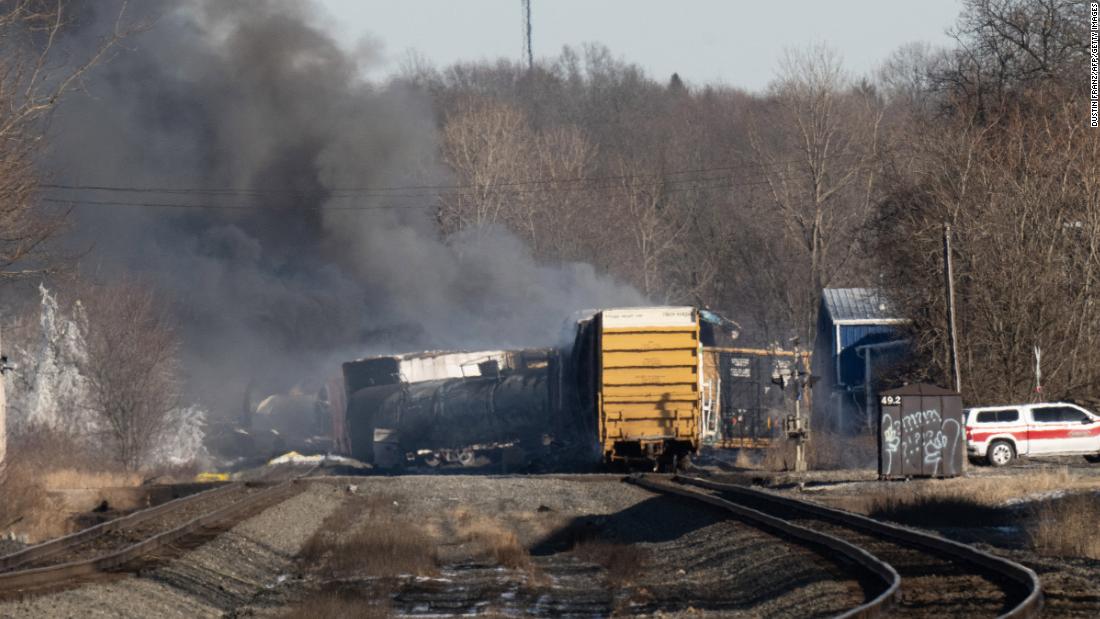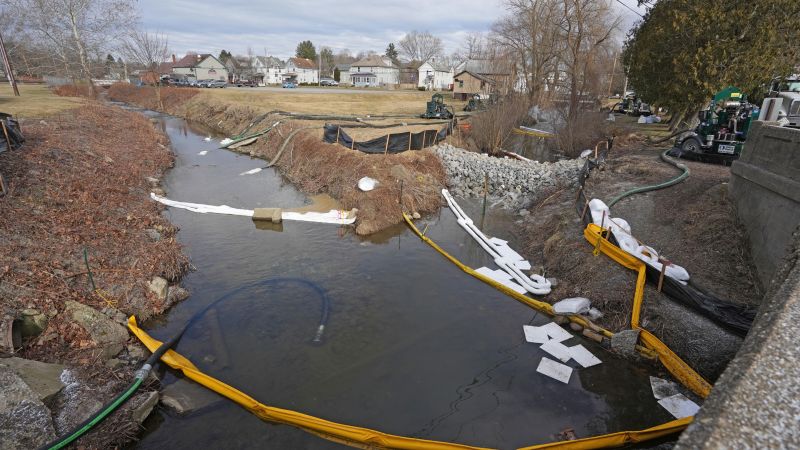One Monday in early March, a team of 15 health specialists affiliated with the federal Agency for Toxic Substances and Disease Registry began knocking on the doors on Taggart Street in East Palestine, Ohio.

amp.cnn.com
[ from back in early March, on Taggart Street ]
‘ . . . They started at 9:30 a.m. and worked without any protective equipment
. About two hours later, two members of the survey team complained of throat irritation. Their supervisor offered to take them out of the field, but they wanted to keep working.
‘By 3 p.m., more reports of symptoms were coming in. The teams withdrew for the day and returned to their hotel, more than 30 miles away.
‘According to an incident report obtained by CNN through a Freedom of Information Act request,
seven people had developed suspicious symptoms. All had sore or “scratchy” throats, three had headaches, one experienced burning in their nose, one felt nauseated, and another was coughing and had chest pain.
‘Although everyone was feeling better that evening, they decided to work from the hotel the next day to play it safe. The teams finished their work in the field a few days later and were sent home.
‘The episode, which was
first reported by CNN, drove home the contradiction that some East Palestine residents say they’ve lived for months: Official statements about contamination of the air and drinking water in East Palestine say there’s no safety concern, but symptoms return for some residents when they come home for brief visits, especially among those whose homes are close to the crash site. . . . ’
*****************
If members of the survey team got sick back in March, no, it certainly wasn’t safe to live there.
The conflict between officials saying— Hey, the chemicals we’ve checked for are at safe levels.
and,
People actually being sick.
Obviously, there are many chemicals — such as combustion products — that we haven’t checked for. Maybe for some of these chemicals we don’t actually have quick and affordable tests.
And/or we’ve misjudged or mis-estimated the “safe” levels.



